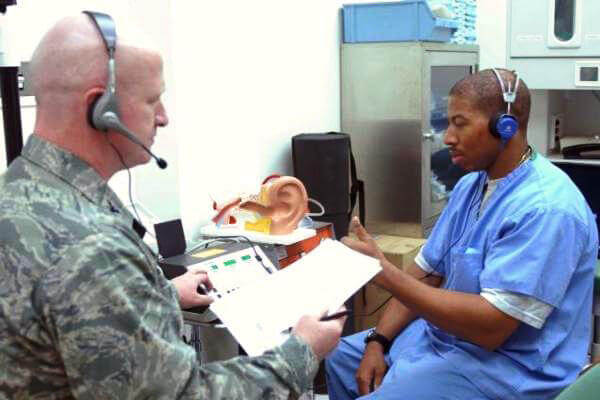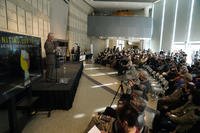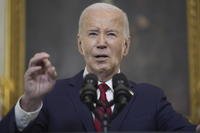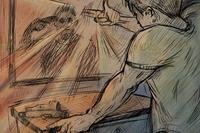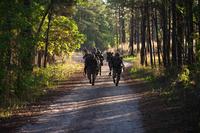Sgt. Daniel Bauer has been a policeman at Gallaudet University in Washington, D.C, for eight years. Trained and certified by the Metropolitan Police Department, the fact that he is deaf has never gotten in the way of doing his job, he said.
Now he's hoping that legislation recently filed in Congress will enable him to switch uniforms -- to Air Force blue.
"My interest in the military has [been strong] since I was a small boy," Bauer said Thursday. "I know some people don't feel ready for it, but I accept the challenge. I'm ready for it."
Bauer was one of a dozen deaf or hearing impaired people who contacted Military.com this past week after learning that the House Armed Services Subcommittee will be considering legislation that could open the doors to military service for the hearing disabled.
"When I heard of this bill it made me really excited," he said.
He was not the only one. Luke Simpson has also dreamed of being in the military. He has hearing aids but his hearing disability has not kept him from being a truck driver, nor has it prevented him from taking flying lessons.
Bauer does not expect to serve in Air Force Security Forces, or Simpson does not anticipate flying fighter jets. But both men believe there are support missions they could do as airmen.
"I know a couple of pilots who fly in the Air Force and I know you have to have perfect hearing for that," Simpson said. But technical or administrative work is not beyond his abilities, he said.
H.R. 5296, filed by Rep. Mark Takano, D-California, on July 30, would have the Air Force launch a demonstration program that would allow 15 to 20 deaf and hearing impaired people to serve. Except for a hearing impairment, the successful applicants would have to meet all other requirements needed to serve as an Air Force officer, according to the bill.
Critics of Takano's bill say the Pentagon has valid reasons for not opening the military up to the deaf or hearing impaired.
"Once you put on the uniform you shouldn't have to be in a special job. Your job is as an Air Force guy," said Donald Pickard of Florida, a retired Air Force fighter pilot. "There is a place for [disabled] people, absolutely. But give them a civilian job, give them a military job but in a civilian slot."
A commander deploying forces should not have to "have an audiologist" along to take care of someone's cochlear implant, or make sure there are batteries stocked for a hearing aid, he said.
"At the same time, if we get the technology that can totally fix whatever that problem is that the physically disabled person has, okay," he said. "You have to take into considerations the physical limitations that people have, but not at the detriment of the military."
Bauer said he won't be bothered by such comments.
"When I went to the police academy sometimes I felt I shouldn't be there and need to leave. I had to break that thought inside me," he said. "I graduated and showed them."
At one point the instructor asked cadets interested in becoming a class leader to write up why they wanted the position. Bauer said he submitted his essay because it was important to at least make his case, not necessarily because he thought he would get it.
But then he was selected as one of four class leaders, he said.
"I was surprised, but I was able to step in and show people what I could do," he said.
-- Bryant Jordan can be reached at bryant.jordan@monster.com.
